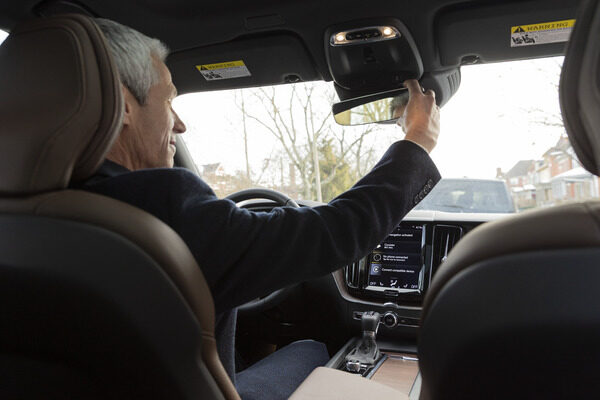
There might come a time when you need to rent a car — either when you’re on vacation or even when your car is in the shop. Whatever the situation, it’s important to know the ins and outs of renting a car, which can help you avoid the most common hidden fees that rental agencies charge.
1. Limit additional drivers.
Will you be the only driver or will someone else take the wheel at times during your rental? If you share driving duties, you may have to include additional names on the rental contract, which could increase the cost. Age is a factor, as drivers under the age of 25 are more expensive. [1] Your best bet is to try to keep the number of drivers to a minimum to avoid supplementary fees and stress.
2. Review your car insurance policy.
While rental reimbursement insurance covers the actual cost of a rental car, it does not protect the rented vehicle in the event of an accident. Before accepting the insurance option offered to you by the rental agent, check with your agent to see whether your personal policy includes collision and comprehensive coverage. If you already have this coverage on your regular vehicle, it may transfer to a rental car, so be sure to check your comprehensive coverage policy.
3. Fill up the gas tank before returning the car.
Rental companies often require that the car be returned with a full tank of gas or they’ll charge you a substantial fee to refill the tank. Fill it up yourself at a gas station near the rental outlet. [4]
4. Bring your own car accessories.
Rental car companies charge a higher rate, often daily, for extras such as navigation systems or baby-safe car seats. [1] It could be cheaper to bring your own equipment.
5. Do a car inspection.
Make sure to inspect the car thoroughly before signing the rental contract. You don’t want to be held accountable for existing damage. Also, have an employee sign off on any ding, scratch or dent you spot. Most rental companies require you to sign an inspection form, but many people are in a hurry and rush through the process. [2] Take this step seriously.
6. Avoid costly airport locations.
Consider renting your car at a location away from the airport. Being able to rent and return at the terminal can be a more convenient option, but you can expect to pay for that convenience through additional airport fees. [1]
7. Return on time.
You may be surprised to learn that you could be charged extra for returning your rental car early. Bringing the vehicle back ahead of time, or later than agreed upon, could result in additional fees. If you anticipate a change in drop-off time, ask the rental agent about the company policy.
8. Browse online for cheap car rentals.
When you’re looking for car rentals that don’t break the bank online, using varied sources and strategies can help save you a significant amount of money. Visiting multiple car rental comparison websites such as Kayak or Priceline allows you to see a broad range of options at once, and you can more easily identify the most economical choices. [1]
9. Take advantage of rental car membership deals.
Memberships such as travel clubs, airline loyalty programs, credit cards or corporate accounts can help save you some money when you travel. First, check to see whether you’re already a member of any of these places. They can often give you a lower rate than you would see from a traditional rental company. [3]
10. Choose a small, economy car.
If you’re traveling with a small number of people and you don’t need the room, you should book the cheapest and smallest option available. Most of the time there won’t even be small options available when you go to pick up your rental car, so you’ll get the bigger ride without the extra fee. If the smaller cars are there and you get what you pay for, you’ll at least be saving money on gas because they cost less to fill up. [4]
11. Consider renting from car-sharing sites.
If car-sharing is more your thing, check out websites such as Getaround and Turo that let you rent cars from the owners directly. The car owners get to set the price and limits on mileage themselves, and they’ll meet you to pick up and drop off the car. [3]
12. Book the car now, compare the rental costs later.
If you can reserve the car without paying, you can keep shopping around for better deals in the meantime. Once you do find a better deal, you can just cancel your current reservation and book the cheaper car. You might want to pay attention to cancellation fees just in case there is a deadline to cancel your original booking. [4]
Do car rentals get cheaper closer to the date?
You might be surprised to learn that rental prices don’t always go up the closer it is to the rental date. In fact, one study shows that renting your car 3 days before your reservation date can save you a significant amount of money. [5]
Learn more about rental car insurance.
These tips can help you to steer clear of high rates and an overall rental car nightmare. Remember that it’s important to understand rental car insurance to make sure that you’re properly protected without overspending. Browse our site if you have any questions about what’s covered in your auto insurance policy.
Sources:
[1] “The Cheapest Way to Rent a Car: 10 Tips To Save,” nerdwallet.com/article/finance/find-cheap-car-rental (Accessed August 2024).
[2] “Why Auto Rental Companies Need Vehicle Inspection Reports,” record360.com/blog/why-auto-rental-companies-need-vehicle-inspection-reports (Accessed August 2024).
[3] “15 Secret Ways to Get Cheapest Car Rentals,” Christopher Elliott, travelandleisure.com/travel-tips/ground-transportation/how-get-cheaper-car-rentals (Accessed August 2024).
[4] “15 Tips to Get the Cheapest Rental Car Every Time,” Scott Keyes, going.com/guides/how-to-find-cheap-rental-cars (Accessed August 2024).
[5] “Which Is Cheaper: Booking Rental Cars in Advance or Last Minute?” Sally French, nerdwallet.com/article/travel/best-time-to-rent-car (Accessed August 2024).
Disclaimer:
The information included is designed for informational purposes only. It is not legal, tax, financial or any other sort of advice, nor is it a substitute for such advice. The information may not apply to your specific situation. We have tried to make sure the information is accurate, but it could be outdated or even inaccurate in parts. It is the reader’s responsibility to comply with any applicable local, state or federal regulations. Nationwide Mutual Insurance Company, its affiliates and their employees make no warranties about the information nor guarantee of results, and they assume no liability in connection with the information provided. Nationwide and the Nationwide N and Eagle are services marks of Nationwide Mutual Insurance Company. © 2024 Nationwide



